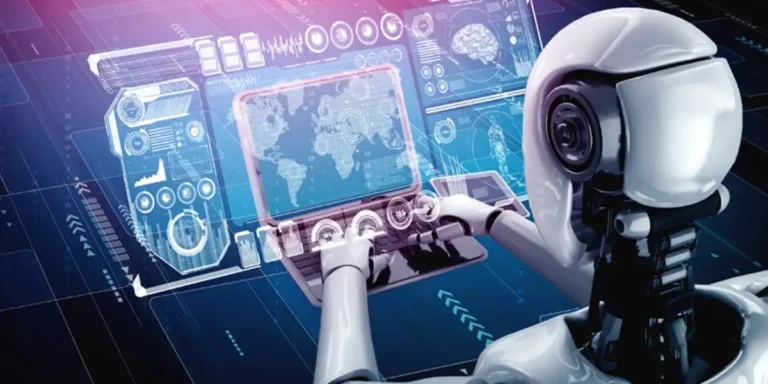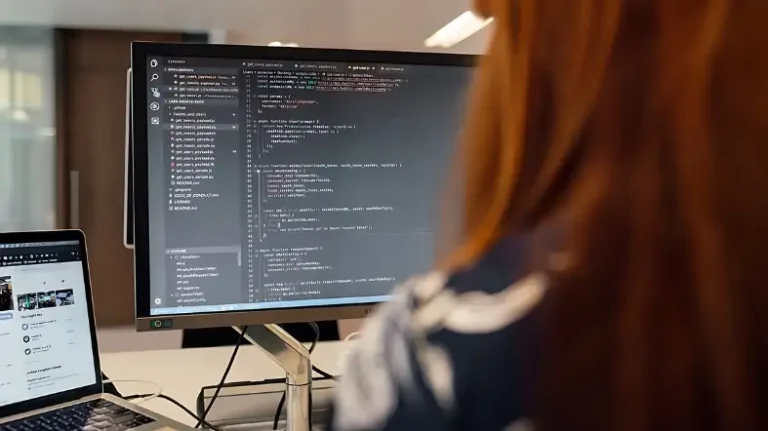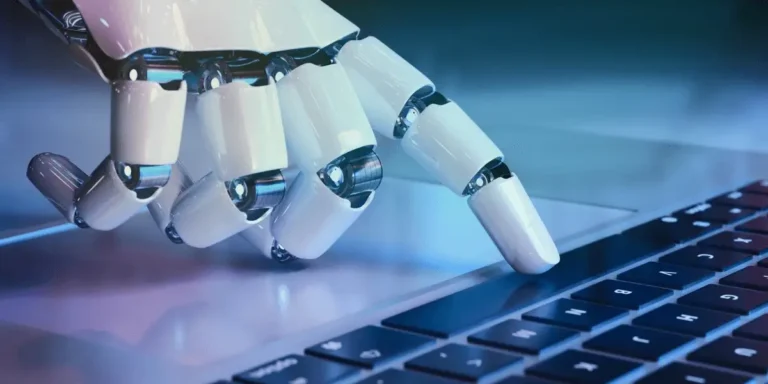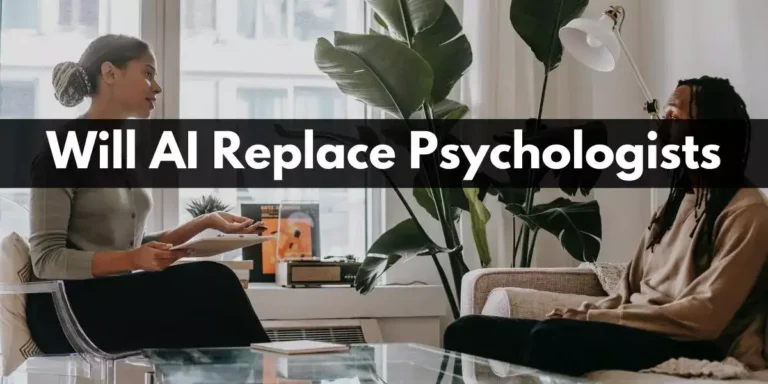Many businesses speculate if artificial intelligence (AI), which is constantly improving, may someday replace human employment. Recruitment is one issue that needs special attention.
It’s only logical to ask whether artificial intelligence (AI) technologies may someday replace human recruiters as they get more sophisticated.
We will examine the present status of AI in recruiting in this blog article, as well as its possible advantages and disadvantages, in eventually determining whether or not recruiters will be replaced by AI.
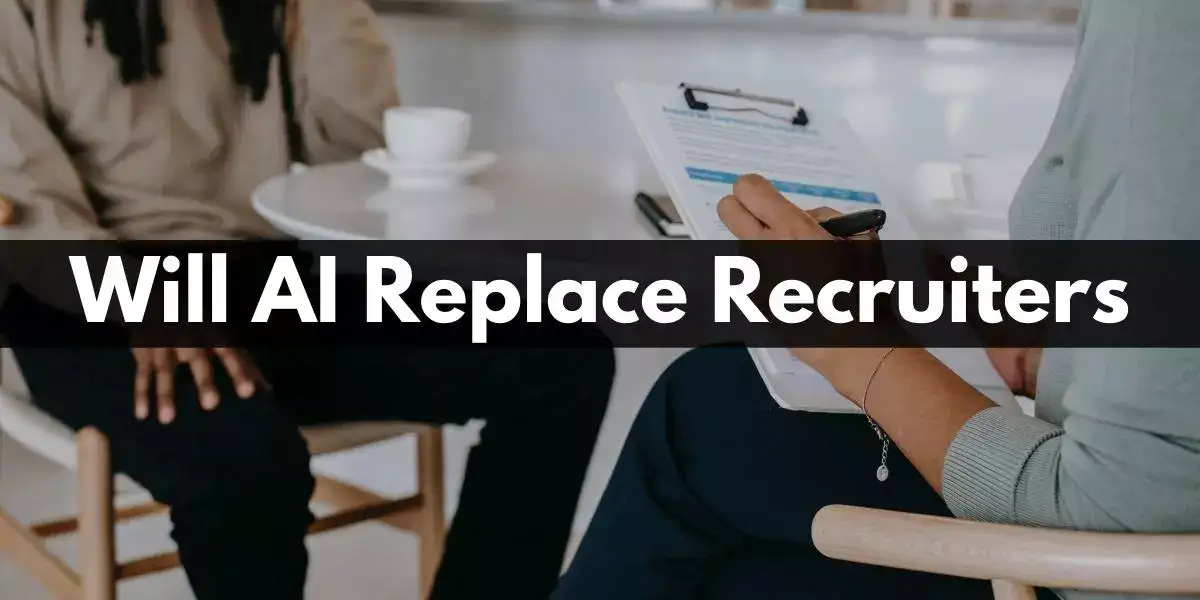
Will AI Replace Recruiters?
No, AI will not replace recruiters anytime soon. While AI can automate certain tasks in recruitment such as resume screening and candidate matching, it cannot replace the human touch needed for successful recruitment, such as critical thinking, personal connections, and empathy.
AI is a valuable addition to the recruitment process, but human recruiters are essential for interpreting personality, soft skills, and cultural fit.
How Will The Use Of AI Affect The Job Market For Recruiters?
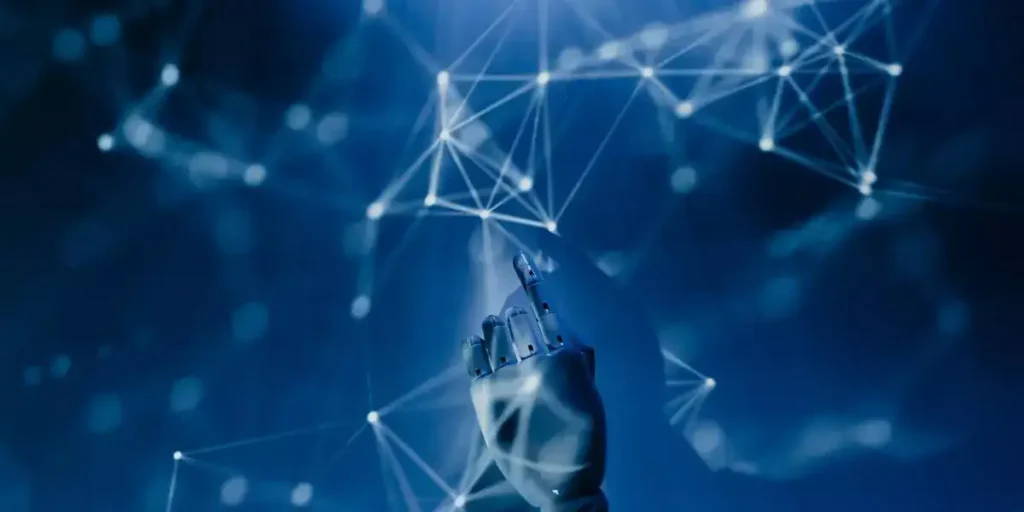
Automated Resume Screening:
One of the most significant changes in the recruitment industry is the use of AI to automate resume screening.
AI algorithms can screen resumes at a faster pace than humans, and they can also eliminate any biases in the hiring process.
For example, an AI tool like HireVue can analyze a candidate’s facial expressions, tone, and body language to determine their suitability for a particular role.
Predictive Analysis:
AI can analyze large amounts of data to make predictions about candidate performance.
Recruiters can use these predictions to identify the best candidates for a given role.
For example, an AI tool like Eightfold can analyze a candidate’s skills, experience, and education to predict their future job performance.
Chatbots:
Another way AI is affecting the recruitment industry is through the use of chatbots. Chatbots can communicate with candidates, answer their questions, and even conduct initial interviews.
For example, Mya is a chatbot that can engage with candidates and schedule interviews, saving recruiters time and effort.
Redefining the Role of Recruiters:
With the increasing use of AI in recruitment, the role of recruiters is changing. Recruiters are no longer just responsible for finding and screening candidates.
They are now required to have a deep understanding of AI and how it can be used to improve the hiring process.
Recruiters need to adapt to these changes and develop new skills to stay relevant in the job market.
Improved Candidate Experience:
The use of AI in recruitment can also improve the candidate experience. For example, chatbots can engage with candidates and provide them with a personalized experience. AI can also provide candidates with feedback on their resumes and interview performance, which can help them improve their chances of getting hired.
Eliminating Bias:
One of the biggest advantages of using AI in recruitment is that it can eliminate bias in the hiring process.
AI can analyze candidate data objectively and make hiring decisions based on merit alone. This can lead to a more diverse and inclusive workforce.
What Skills Recruiters Should Learn To Hold Their Job To Hold Their Job At The Age Of AI?
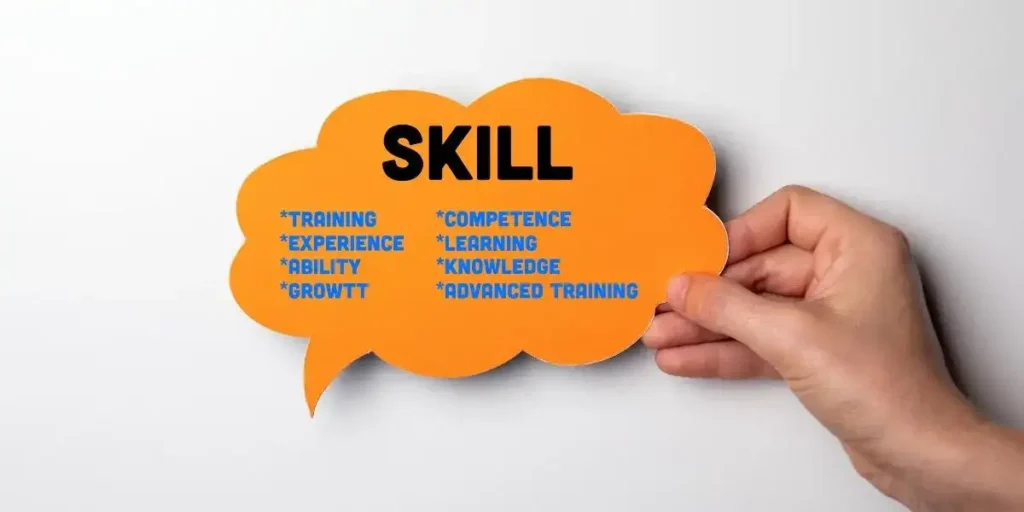
Keep up with the trends
The skills required for many positions have a decreasingly long shelf life and traditional recruiting strategies are becoming outdated.
Keep abreast with the most recent developments in hiring and remain ahead of the curve.
Develop both hard and soft skills
Recruitment skills can be divided into two categories: hard skills and soft skills.
Hard skills are technical abilities that a recruiter can learn through formal education, internships, or work experience, while soft skills are personal attributes that enable someone to interact effectively and harmoniously with other people.
Examples of hard skills include data analysis, candidate sourcing, and the use of Applicant Tracking Systems (ATS).
Examples of soft skills include communication skills, critical thinking, and time management.
Communicate with candidates in their own language
Recruiters must communicate with candidates in their language to build trust and foster positive relationships.
In addition to language, cultural knowledge is also critical for recruiters to understand and relate to candidates from diverse backgrounds.
Communicating in candidates’ language and cultural context can help recruiters establish a connection with them and gain a better understanding of their needs and aspirations.
Think critically
Recruiters must be critical thinkers who analyze and evaluate information to make informed decisions.
Critical thinking skills enable recruiters to examine the information presented to them objectively, identify potential biases, and form a judgment based on evidence.
By thinking critically, recruiters can make fair and successful hiring decisions that benefit both the organization and the candidate.
Time management
Effective time management is a critical skill for recruiters who must manage multiple candidates and meet their requirements in a timely manner.
Recruiters who can manage their time effectively can prioritize tasks, stay organized, and increase productivity.
Time management skills are particularly crucial for recruiters who handle multiple projects simultaneously.
Embrace technology
Technology is transforming the recruitment landscape, and recruiters must learn to embrace it to stay competitive.
Technologies such as ATS enable recruiters to automate the recruitment process, manage candidate databases, and streamline workflows.
By embracing technology, recruiters can save time and effort, allowing them to focus on other critical aspects of recruitment, such as candidate engagement and relationship building.
Develop fundamental HR skills
Recruiters should possess a good understanding of fundamental HR skills, such as candidate screening, candidate experience, and recruitment analytics.
These skills help recruiters identify and evaluate candidates based on their qualifications, experience, and cultural fit, and analyze recruitment metrics to improve the recruitment process.
Recruiters who possess fundamental HR skills can make better hiring decisions and create a positive candidate experience.
Be adaptable
Adaptability is a crucial skill in the age of AI, where the recruitment landscape is constantly changing.
Recruiters who can adapt quickly to new technologies and trends are more likely to succeed and hold their jobs in the age of AI.
Being adaptable also means being open to new ways of working and being able to pivot when necessary.
Recruiters who can adapt to change are better positioned to succeed in the long run.
What Are The Potential Advantages Of Using AI In Recruitment?
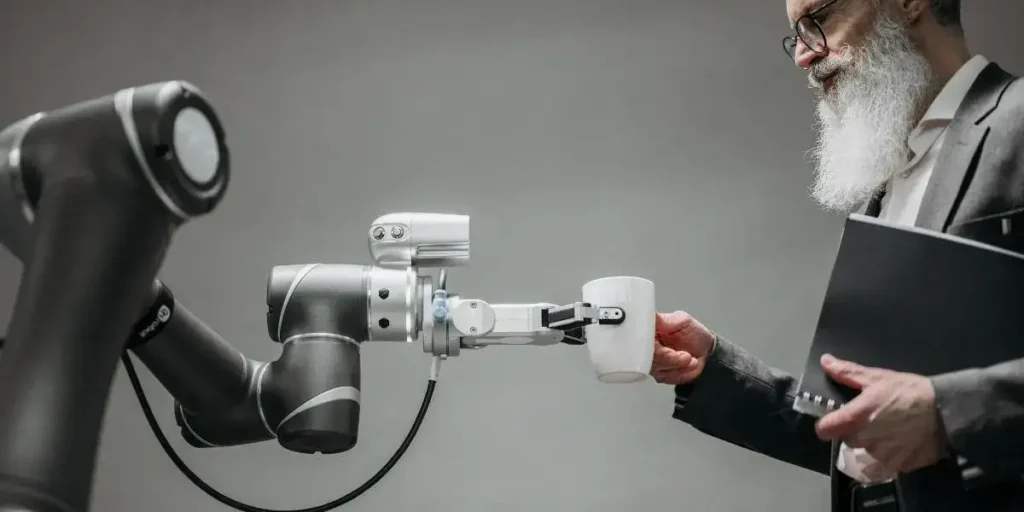
Improved Candidate Matching
One of the most significant advantages of using AI in recruitment is the ability to improve candidate matching.
With AI, recruiters can quickly analyze resumes and job descriptions to identify the most suitable candidates for a specific position.
AI-powered recruiting tools can automatically sort resumes, compare job requirements with candidate qualifications, and rank candidates based on their suitability for a particular role.
This not only saves recruiters a lot of time and effort but also helps them to identify the best candidates quickly.
Increased Efficiency
Recruiting can be a time-consuming and challenging process. However, AI-powered recruiting tools can streamline the process and increase efficiency significantly.
These tools can automate many of the time-consuming tasks involved in recruiting, such as resume screening, scheduling interviews, and sending out rejection letters.
This means that recruiters can focus on more critical tasks, such as interviewing candidates and making hiring decisions.
Reducing Bias
Reducing prejudice is a big benefit of employing AI in hiring. The recruiting judgments of recruiters may be influenced by their unconscious prejudices since they are just human.
On the other side, AI-powered recruitment tools are designed to be neutral and unbiased.
They can evaluate resumes without taking variables like gender, ethnicity, or age into account.
This may aid in ensuring that the hiring process is impartial and that the top applicants are chosen based on their credentials and abilities.
Cost Savings
Recruiting may be costly, particularly for bigger firms that have several roles that need to be filled.
By automating many of the time-consuming and costly procedures involved in the hiring process, using AI-powered recruiting solutions may drastically lower recruitment expenses.
Organizations may save time and money by doing things like publishing employment advertising and doing background checks.
Enhancing Candidate Experience
Last but not least, using AI in hiring may improve the applicant experience. With the use of AI-powered recruitment tools, prospects may get a more personalized experience, such as job recommendations based on their credentials and skill set.
Additionally, they may provide applicants with immediate feedback on their resumes, assist them in getting ready for interviews, and respond to any questions they may have about the position or business.
This may increase the likelihood of recruiting and keeping top talent by helping to create a more pleasant and engaging applicant experience.
How Will AI Impact Recruiters’ Roles And Responsibilities?

Improved Candidate Sourcing
One of the most significant ways that AI is impacting recruiters’ roles is by improving candidate sourcing.
AI tools can quickly analyze and sort through vast amounts of candidate data, identifying top candidates based on skills, experience, and other relevant factors.
This can save recruiters countless hours of manual labor, freeing them up to focus on other aspects of the recruitment process.
Increased Efficiency
Another benefit of AI in recruitment is increased efficiency. AI can automate repetitive and time-consuming tasks such as resume screening, scheduling interviews, and sending follow-up emails.
This not only saves recruiters time but also reduces the likelihood of errors or oversights.
Improved Candidate Experience
AI can also improve the candidate experience by providing real-time feedback and personalized communication throughout the recruitment process.
For example, chatbots can answer candidates’ questions about the application process, and AI-powered assessments can provide candidates with personalized feedback on their skills and qualifications.
Enhanced Diversity and Inclusion
AI can also play a role in enhancing diversity and inclusion in recruitment.
By analyzing candidate data and identifying patterns, AI tools can help recruiters identify and eliminate biases in the hiring process.
This can lead to a more diverse and inclusive workforce.
Augmented Decision-Making
Finally, AI can augment recruiters’ decision-making abilities. By analyzing candidate data and predicting future job performance, AI can help recruiters make more informed hiring decisions.
This can lead to better retention rates, improved job performance, and a more efficient recruitment process overall.
What Are The Potential Drawbacks Of Using AI In Recruitment?

Bias:
Bias is one of the most important possible consequences of utilizing AI in hiring. If the data used to train an AI system is biased, the system itself will likewise be skewed since AI algorithms are only as impartial as the data they are trained on.
Discrimination against certain groups of individuals, such as women, minorities, or older job applicants, may result from this.
An AI system, for instance, may prejudice against women who are equally competent for a position if it is trained on historically discriminatory recruiting data.
Lack of Human Interaction:
Another potential drawback of using AI in recruitment is the lack of human interaction. AI-powered tools can help recruiters to automate the screening process, but they cannot replace the human touch entirely.
Candidates may feel disengaged or disconnected if they are only interacting with machines throughout the hiring process. This lack of personal interaction can lead to a negative candidate experience, which can harm the employer’s brand reputation.
Technical Glitches:
Another potential drawback of using AI in recruitment is technical glitches. AI-powered tools are only as good as their programming, and they can malfunction or produce inaccurate results.
For example, an AI system may reject a candidate based on irrelevant factors, such as their name, rather than their qualifications.
This can lead to missed opportunities for qualified candidates and can harm the employer’s brand reputation.
Ethical Concerns:
Ethical issues are a possible disadvantage of utilizing AI in hiring.
Massive volumes of data about applicants, including identifying details like their age, gender, and ethnicity, may be gathered and analyzed by AI-powered systems. Concerns concerning data security and privacy are raised by this.
Additionally, AI-powered technologies may be used to evaluate applicants based on their social media usage or other individual characteristics, which is potentially intrusive and discriminating.
Lack of Transparency:
The lack of transparency when utilizing AI in hiring is another possible issue. AI-powered systems can make judgments based on intricate algorithms, which might be challenging to comprehend or justify.
This lack of openness may undermine confidence in the selection process and damage the employer’s image.
Additionally, it could be difficult for applicants to comprehend their rejection, which might result in a bad applicant experience.
FAQs
Can AI Accurately Screen Resumes And Applications?
Yes, AI can accurately screen resumes and applications by quickly analyzing large amounts of data to identify key qualifications and keywords. This helps to reduce human bias and improve the efficiency of the hiring process.
Can AI Effectively Conduct Interviews?
Yes, AI is capable of conducting interviews well. AI may evaluate applicants’ reactions and behaviors to assess their fitness for a job using natural language processing, machine learning, and other cutting-edge technologies. It’s crucial to remember that AI should be used in conjunction with human judgment, not instead of it.
What Are The Restrictions On Using AI In Hiring?
Artificial intelligence (AI) systems may not be able to effectively evaluate some soft skills or cultural fit, which are crucial employment criteria. Additionally, the concept of being judged by a computer rather than a person may make some applicants uneasy.
What Function Will Recruiters Have In An AI-Driven World?
Recruiters will still be essential to the recruiting process, especially in positions that need emotional intelligence and human judgment. Additionally, recruiters may collaborate with AI systems, using them to support their efforts.
How Can Recruiters Be Ready For The Growing Influence Of AI In Hiring?
By remaining current on the newest AI technology and trends, recruiters can be ready for the growing importance of AI in recruitment. Additionally, they may concentrate on honing abilities like relationship-building, emotional intelligence, and strategic thinking that are difficult for robots to imitate.
Conclusion
While AI is undoubtedly advancing in the recruiting industry, it’s doubtful that it will ever completely replace human recruiters.
AI may assist in the recruiting process in certain ways, such as by screening through applications and finding the best applicants, but it is unable to replace the human recruiters’ ability to make thoughtful judgment calls and cultivate relationships.
The best applicants for each particular post will likely be found using a mix of AI and human experience, according to the most effective recruiting tactics.
